Building global partnerships to counter Foreign Information Manipulation and Interference
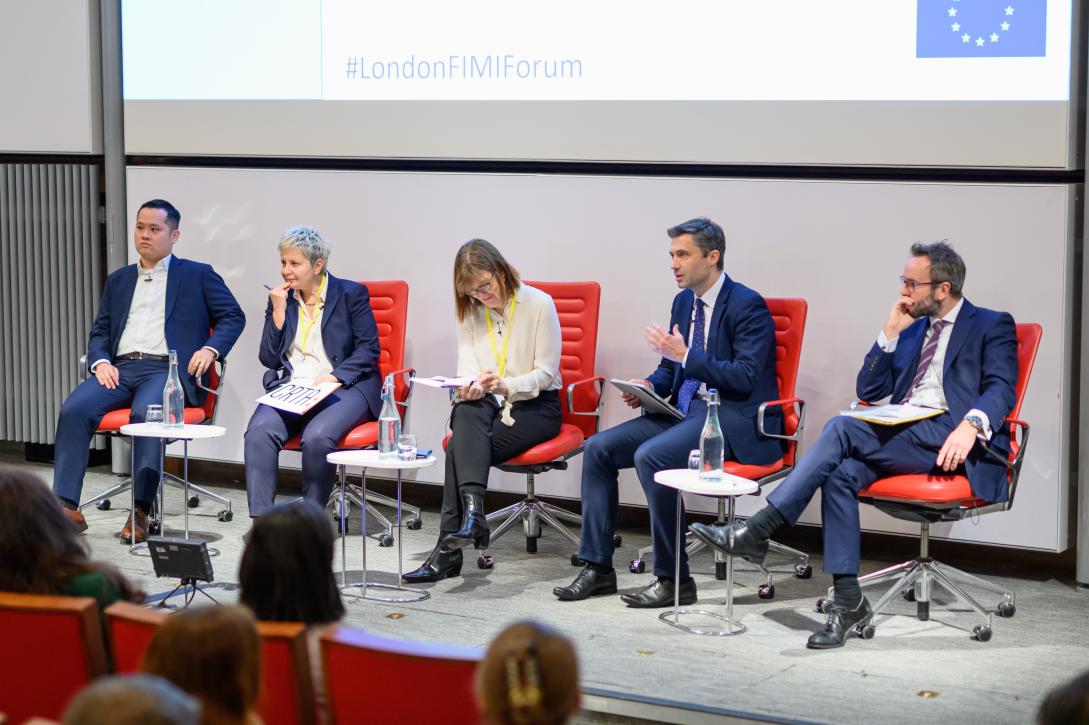
The event opened with remarks from EU Deputy Ambassador to the UK, Isabell Poppelbaum and by Irene Mingasson, Head of Unit at the European Commission’s Foreign Policy Instrument FPI that made the event possible. They both emphasised the relevance of the threats posed by FIMI in a year when so many people, including first-time voters, are heading to the polls, and highlighted the importance of collaboration among institutions, academia, the private sector as well as, civil society to address this issue.
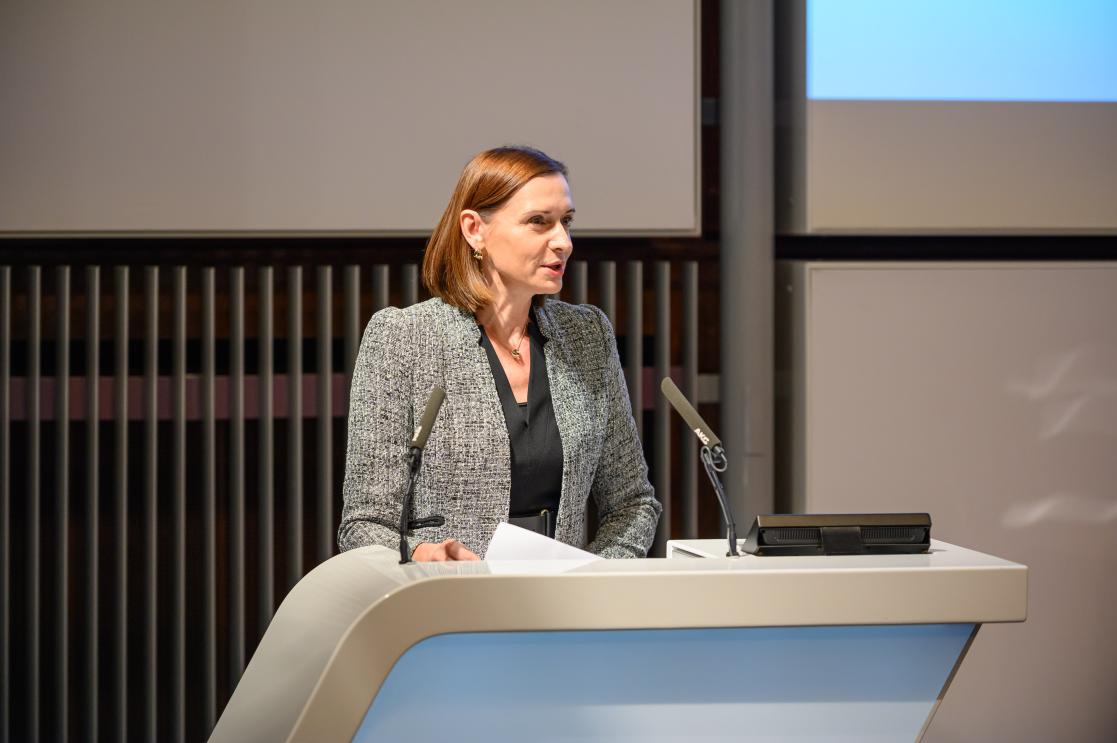
EUDEL
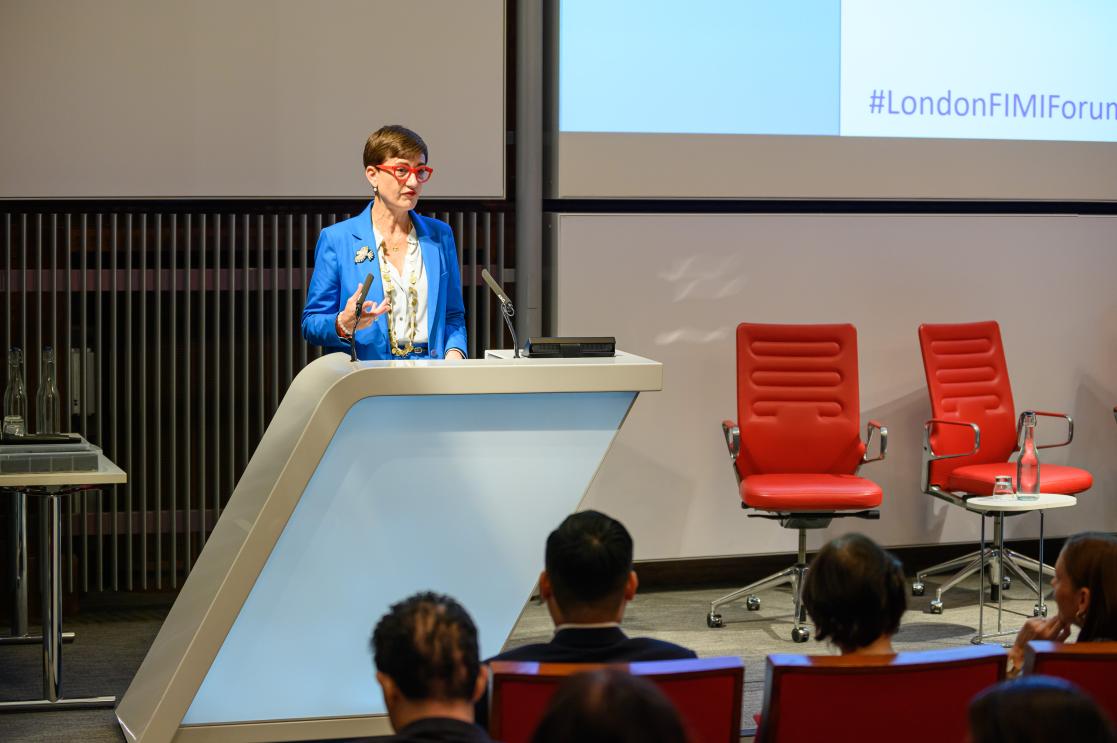
EUDEL
The first panel explored FIMI as a global threat to democracy and stressed the necessity of sharing experiences and strategies across borders. Speakers discussed examples from various regions: across the European continent, looking at the European Parliament elections, the UK and French general elections as well as the latest ones in Serbia, and in Taiwan. Interestingly, the Paris Olympics was also highlighted as a target for FIMI, with France reportedly countering 43 FIMI campaigns. The fast-evolving nature of FIMI, driven by emerging technologies, including Artificial Intelligence, makes it difficult to combat and highlights even further the need for common understanding of the problem, the experts mentioned. The panel concluded that while common terminology is key, different countries may require tailored approaches based on their unique experiences.
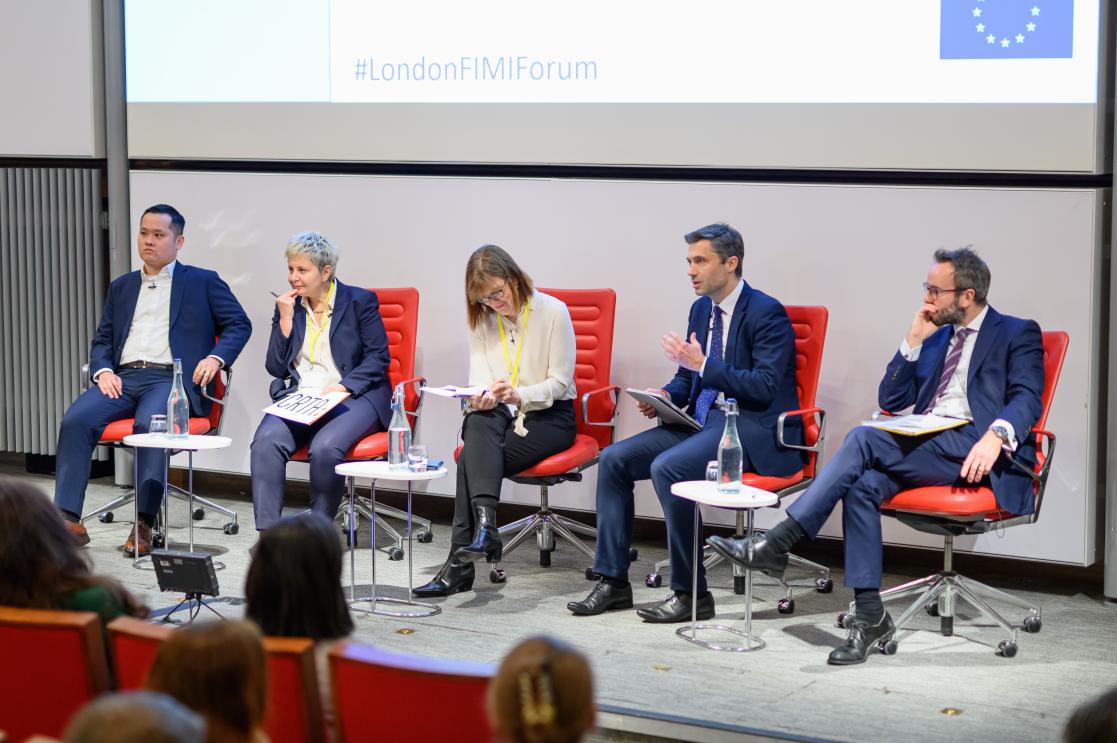
EUDEL
The second panel focused on lessons learned from Ukraine, where FIMI has become a key weapon in the ongoing Russian war of aggression. Russia's use of deep fakes and less-regulated platforms like Telegram to amplify disinformation was a major point of discussion. Ukraine's countermeasures include raising awareness amongst citizens, providing them with verified sources, and blacklisting unreliable channels.

EUDEL
The third panel shifted to the importance of building broader partnerships for collective responses. The speakers discussed how disinformation flows across borders, using examples from African nations. One key issue discussed was the role of funding the dissemination of FIMI. Russia was frequently referred to as key player in providing financial support, particularly in countries where journalists are underpaid. This leads to the creation of "digital autocracies" and cyber mercenaries, which pose serious threats. Education and network exchanges were highlighted as essential, especially in addressing the psychological dimensions of FIMI.
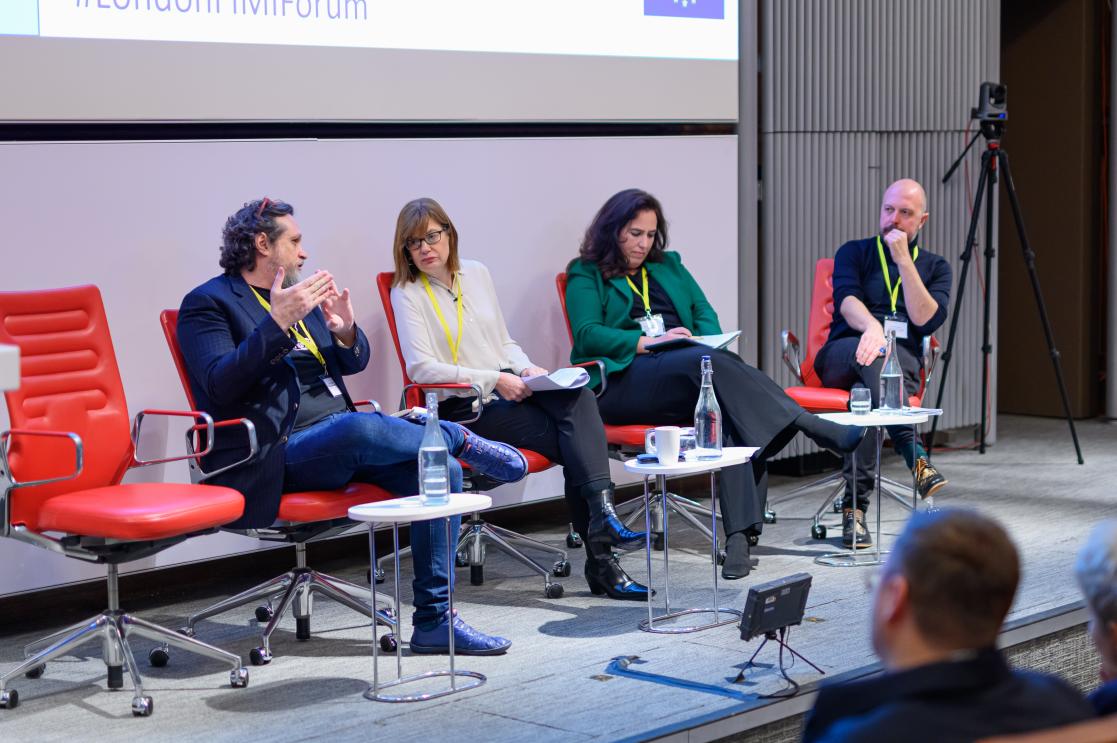
EUDEL
The final panel focused on the security implications of the evolving FIMI threat. While FIMI impacts individuals, it also has broader consequences for the security of democracies and defence systems. The discussion highlighted the importance of coalitions with like-minded partners, including G7 efforts and the development of the AI Act. Since technology is advancing faster than policy can adapt, collaboration between private actors, stakeholders, and institutions is crucial for countering FIMI effectively.
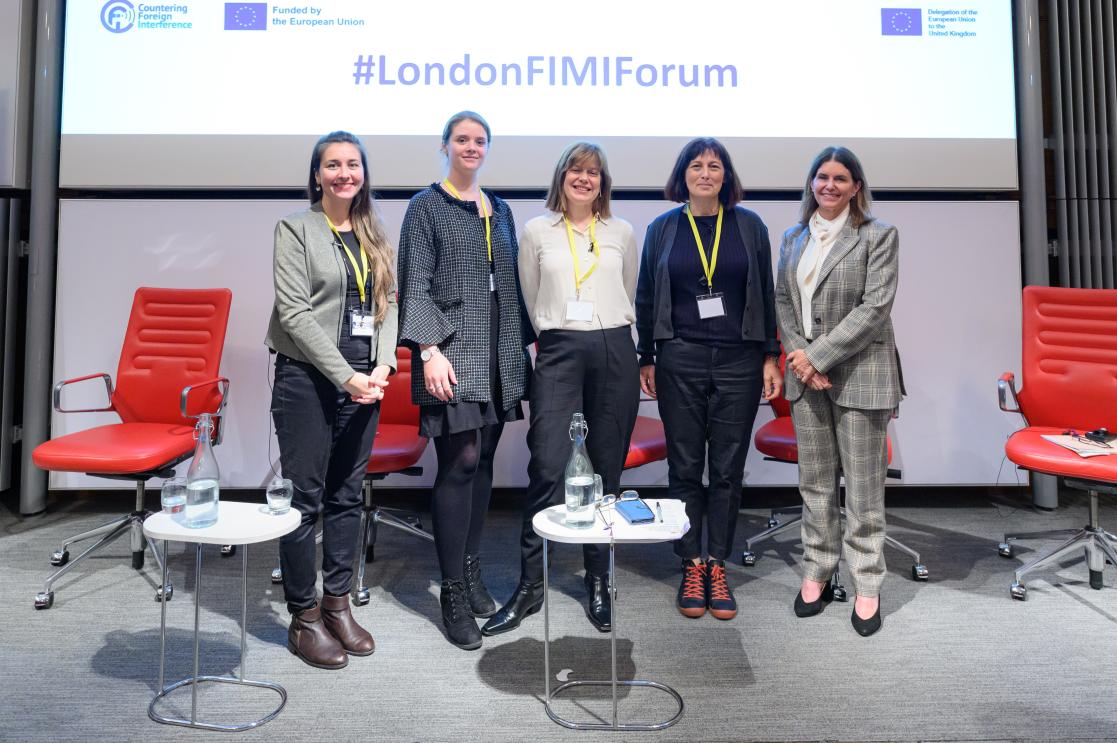
EUDEL
The event concluded with remarks from Aude Maio-Coliche, Director of Strategic Communication and Foresight at the EEAS. She emphasised the importance of building collective responses to FIMI, while always respecting human rights and freedom of speech. Ms Maio-Coliche also highlighted some key EU measures to counter this global threat, such as the recent adoption of a new sanctions framework. It targets those responsible for destabilising activities like electoral interference, disinformation, cyberattacks, and the manipulation of migrants, she stressed. This framework imposes measures such as asset freezes, travel bans, and restrictions on EU citizens and companies from providing funds to those designated under it.
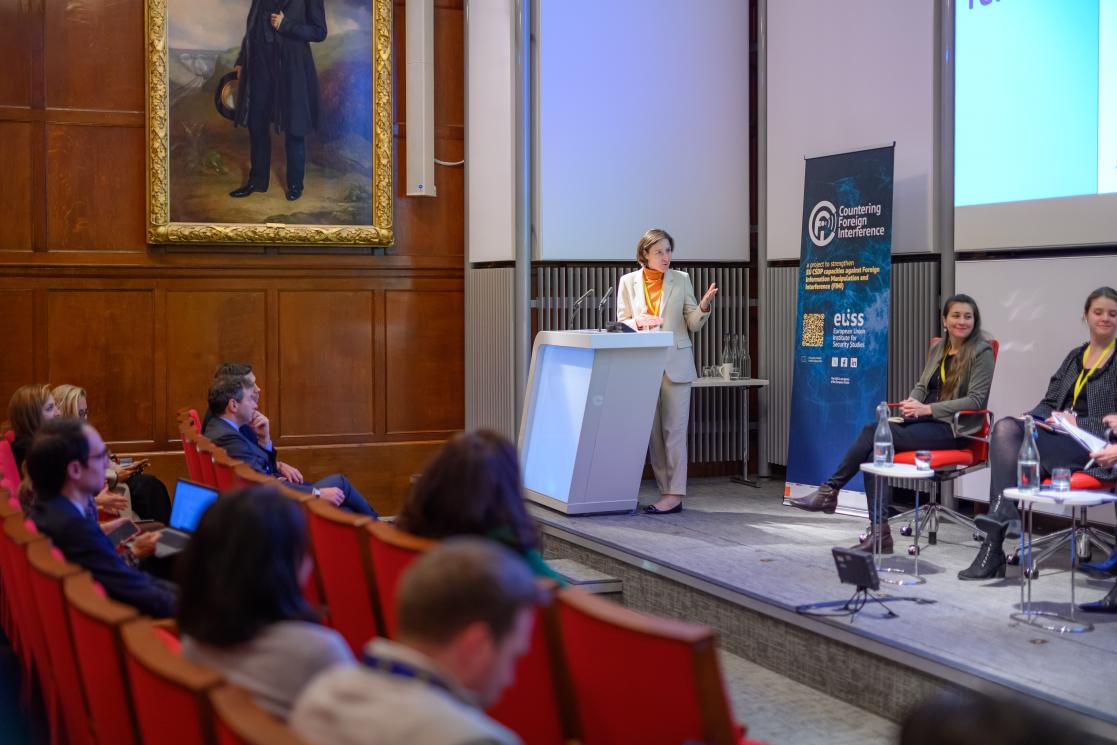
EUDEL





